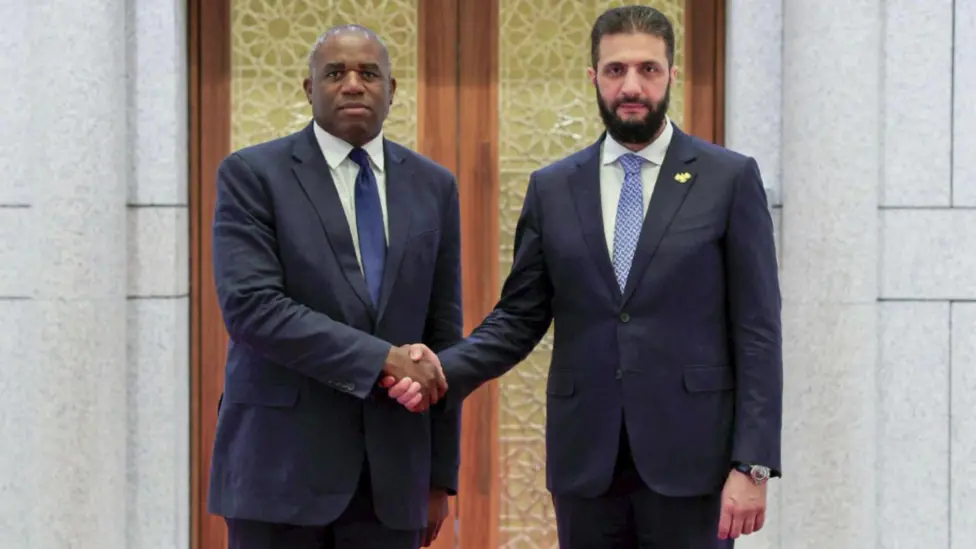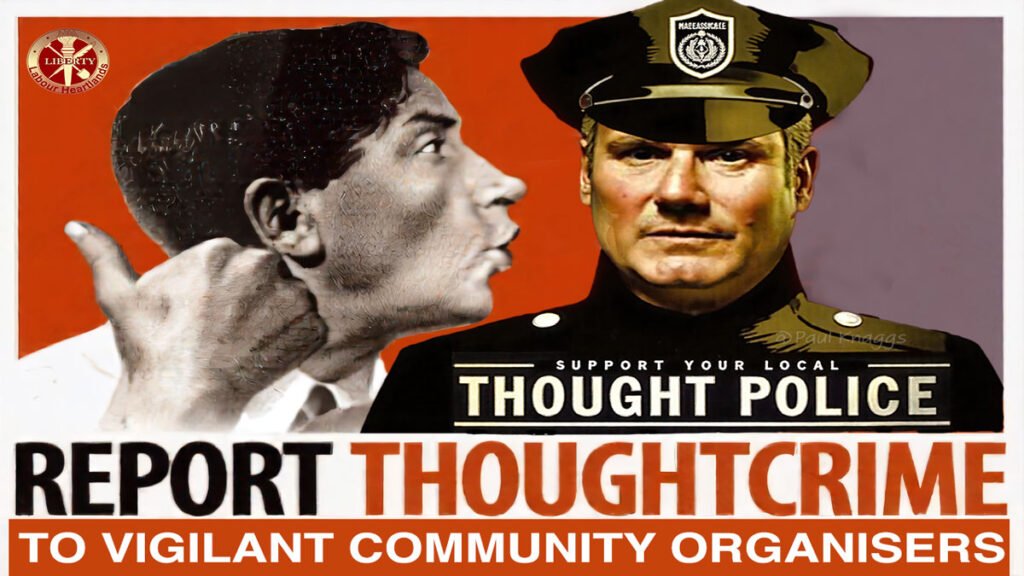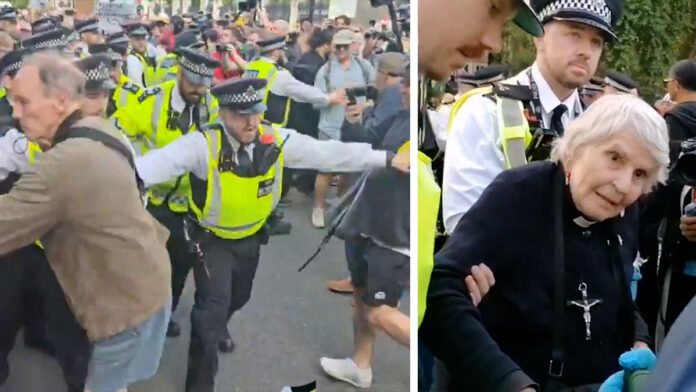Terrorists Pensioners: The State’s War on Dissent
What does it tell us about the state of British democracy when a 79-year-old woman from Dorset can be arrested under terrorism legislation for holding a piece of paper? When Sir Jonathon Porritt, environmental campaigner and former royal adviser, finds himself dragged from Parliament Square for the crime of peaceful protest? When almost 900 people, a majority of them pensioners in their seventies and eighties, are hauled away by police for expressing solidarity with Palestinian liberation?
Saturday’s mass arrests outside the seat of our democracy represent something far more sinister than heavy-handed policing. They mark the moment when the British state abandoned even the pretence of distinguishing between terrorism and legitimate political dissent. In proscribing Palestine Action under the Terrorism Act, this Labour government has crossed a line that should chill every British person who believes in the right to protest.
Among the 857 people arrested were vicars and priests, war veterans, descendants of Holocaust survivors, along with retired teachers and healthcare workers,” the group said in a statement, a roll call of ordinary citizens criminalised for taking a stand.
The scenes from Parliament Square read like something from a dystopian novel. Elderly protesters going “floppy” to make their arrests more difficult. Police officers hauling away wheelchair users and pensioners while crowds chanted, “Shame on you.” All of this unfolding in the shadow of statues commemorating Mahatma Gandhi and Millicent Fawcett, titans of peaceful resistance who would themselves face arrest under today’s draconian laws.
The Home Office has won a legal decision which means it can attempt to block a move by Palestine Action to have its ban under terror laws overturned.
The latest legal twist in the battle between the government and the protest group – now proscribed as a terror organisation – saw the Court of Appeal rule that the Home Office can challenge the decision to grant a judicial review of the organisation’s proscription that was due to be heard in November.
To many, this is seen as a breathtaking scope of this authoritarian overreach. Palestine Action, a group that campaigns against arms manufacturers supplying weapons to Israel, has been designated a terrorist organisation. Not because they have killed anyone, they haven’t. Not because they have plotted bombings or planned assassinations, there is no evidence of such activities. They have been banned because they have effectively disrupted the profit margins of companies complicit in what many legal scholars, including those at the International Court of Justice, have termed potential genocide.
It would be farcical if it weren’t so terrifying.
Let’s be clear: Palestine Action is not ISIS. It’s not Al-Qaeda. We leave that kind of fraternisation to our former Foreign Secretary, David Lammy, and his newfound champion of democracy, Ahmad al-Sharaa, better known as Abu Mohammed al-Golani—the West’s favourite former jihadist, once flying the black flag of global terror. Palestine Action is a non-violent direct action network.
Their real crime? Daring to expose Britain’s cosy financial and military complicity in Israel’s war machine. For that, the full weight of the state comes crashing down. Because in Starmer’s Britain, war criminals are partners, but those who call them out are the ones branded dangerous.

The government’s defenders will argue that some Palestine Action tactics have crossed legal boundaries, that property damage and direct action require firm responses. This misses the point entirely. The issue is not whether specific actions merit criminal charges, they may well do. The issue is the weaponisation of terrorism legislation to criminalise an entire movement, turning membership or even expressions of support into offences punishable by fourteen years in prison.
This represents the logical conclusion of decades of mission creep in counter-terrorism law. What began as emergency measures to combat genuine threats to public safety has morphed into a catch-all mechanism for suppressing political opposition. When holding a placard reading “I support Palestine Action” becomes an act of terrorism, the word terrorism has lost all meaning, except as a tool of state repression.
The demographics of those arrested tell their own story. At the previous demonstration in August, the average age was fifty-four, with almost 900 arrests among those aged sixty to sixty-nine. These are not radicalised extremists plotting violence in dark corners. They are teachers, doctors, retirees, and professionals whose consciences compel them to bear witness against what they see as complicity in mass killing. That such people now find themselves classified as terrorists reveals the moral bankruptcy of a system that prioritises arms trade profits over basic human rights.
The timing of these arrests is particularly telling. As evidence of Israel’s actions in Gaza continues to mount, with UN experts documenting the systematic destruction of hospitals, schools, and civilian infrastructure, the British government’s response is not to reconsider its support for such actions, but to criminalise those who protest them. The message is clear: criticism of Israel’s conduct, no matter how well-founded in international law, will not be tolerated.
Former Home Secretary Yvette Cooper’s defence of the proscription, claiming supporters “don’t know the full nature” of the group, reveals the paternalistic contempt underlying this entire enterprise. These are adults making informed political choices based on their reading of current events. To suggest they are merely dupes misled by extremists is to deny their agency and intelligence in precisely the way authoritarian governments have always dismissed political opposition.
The broader implications extend far beyond Palestine solidarity. If the state can designate any campaign group as terrorist based on their tactics rather than their aims, what protection exists for environmental activists who blockade roads? For trade unionists who occupy workplaces? For anyone whose methods of protest inconvenience the powerful? The precedent being set here will echo through British political life for generations.
The international dimension makes this even more shameful. At a moment when the global community grapples with allegations of genocide and war crimes, when the International Criminal Court issues arrest warrants for Israeli officials, Britain chooses to criminalise those calling for accountability. We have positioned ourselves not as a beacon of justice, but as a willing accomplice to atrocity, using the full weight of anti-terrorism law to silence dissent.

The courage displayed by Saturday’s protesters, knowing they faced arrest and potential imprisonment, stands in stark contrast to the cowardice of a government that prefers criminalisation to honest debate. These pensioners and professionals, students and activists, chose to risk their freedom rather than remain silent while injustice unfolds. Their willingness to be arrested for their principles reveals more about the state of British democracy than any government press release.
This Labour government came to power promising to restore integrity to public life after years of Tory corruption. Instead, we witness the continuation and intensification of authoritarian drift. Keir Starmer, who once defended civil liberties as a human rights lawyer, now presides over the criminalisation of peaceful protest. The transformation is complete: from defender of justice to enforcer of state orthodoxy.
The state’s war on Palestine solidarity is ultimately a war on democratic participation itself. When governments can declare entire movements terrorist for challenging their policies, democracy becomes merely a façade masking authoritarian control. The choice before us is stark: defend the right to protest now, or lose it forever. The pensioners in Parliament Square understood this. The question is whether the rest of us will find the same courage before it is too late.
Support Independent Journalism Today
Our unwavering dedication is to provide you with unbiased news, diverse perspectives, and insightful opinions. We're on a mission to ensure that those in positions of power are held accountable for their actions, but we can't do it alone. Labour Heartlands is primarily funded by me, Paul Knaggs, and by the generous contributions of readers like you. Your donations keep us going and help us uphold the principles of independent journalism. Join us in our quest for truth, transparency, and accountability – donate today and be a part of our mission!
Like everyone else, we're facing challenges, and we need your help to stay online and continue providing crucial journalism. Every contribution, no matter how small, goes a long way in helping us thrive. By becoming one of our donors, you become a vital part of our mission to uncover the truth and uphold the values of democracy.
While we maintain our independence from political affiliations, we stand united against corruption, injustice, and the erosion of free speech, truth, and democracy. We believe in the power of accurate information in a democracy, and we consider facts non-negotiable.
Your support, no matter the amount, can make a significant impact. Together, we can make a difference and continue our journey toward a more informed and just society.
Thank you for supporting Labour Heartlands









